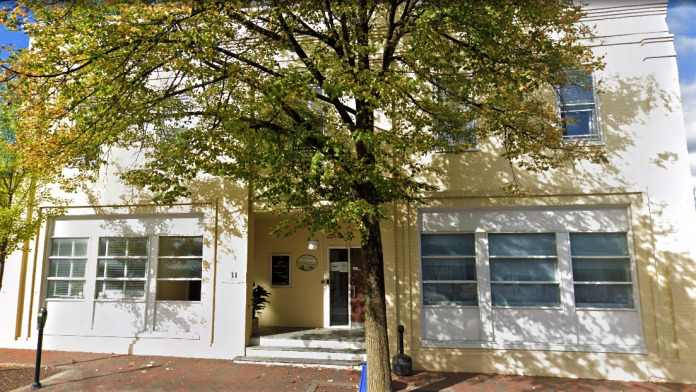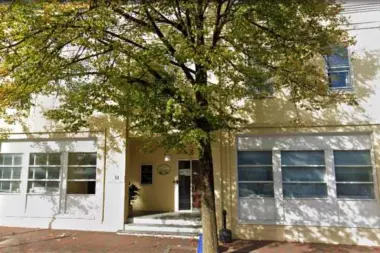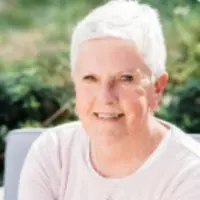It's a place for the fiscally delusional to take your money. If that's what you're into, do it! The hippie vibe and theatrics of the place makes you really want to get better.
About Bridging the Gaps
Bridging the Gaps is an addiction treatment center located in Winchester, Virginia. They specialize in helping people through holistic care and other therapy methods that can get you back on the right path by healing your mind, body, and spirit. They offer well-rounded care and are proudly accredited by CARF. Their levels of care include practically everything: they have residential treatment, partial hospitalization care, intensive outpatient treatment, and standard outpatient care.
Starting Amino Acid Therapy
Starting with their most unique services is an approach called amino acid therapy. This is really interesting because it’s one of the core components of their treatment model, and it can help you balance your brain’s chemistry. It has been shown to reduce cravings and emotional instability while you’re trying to recover.
Nutrition & Wellness
They also offer a program for nutrition and physical wellness. This can also play a critical role and includes nutrition counseling as well as physical wellness programs to help you regain your physical strength and learn how to take care of your body while you heal.
Therapy Models
You can partake in individual counseling, group therapy, family counseling, and their alumni program. This last one is a good way to continue your treatment even after it’s finished as you can participate in group meetings, social events, and continued counseling. They also offer medication-assisted treatment (MAT) through prescriptions like Suboxone and Vivitrol to help you with withdrawal symptoms and cravings.
Overcomers Outreach
Their Overcomers Outreach program is a great way to combine Christian principles with the structure of 12 Step recovery in order to gain education about addiction and build strong peer relationships. They provide spiritual guidance and fellowship and can help you build a strong spiritual foundation, which in many cases can be a key aspect of your recovery.
Latest Reviews
Rehab Score
Gallery


Accepted Insurance
Other Forms of Payment
Private insurance refers to any kind of healthcare coverage that isn't from the state or federal government. This includes individual and family plans offered by an employer or purchased from the Insurance Marketplace. Every plan will have different requirements and out of pocket costs so be sure to get the full details before you start treatment.
Self-pay involves paying for treatment out of your own pocket. You can use savings or credit, get a personal loan, or receive help from family and friends to fund your treatment. If you don't have insurance or your insurance plan doesn't cover a specific program, self-pay can help ensure you still get the care you need.
Financial aid can take many forms. Centers may have grants or scholarships available to clients who meet eligibility requirements. Programs that receive SAMHSA grants may have financial aid available for those who need treatment as well. Grants and scholarships can help you pai for treatment without having to repay.
Military members, veterans, and eligible dependents have access to specific insurance programs that help them get the care they need. TRICARE and VA insurance can help you access low cost or no cost addiction and mental health treatment. Programs that accept military insurance often have targeted treatment focused on the unique challenges military members, veterans, and their families face.
Addiction Treatments
Levels of Care
Their Partial Hospitalization (PHP) program (commonly referred to as day treatment) reflects their commitment to a full continuum of care and offers a rigorous option for individuals whose needs and circumstances make them candidates for a non-residential program. Day treatment allows individuals to receive quality, targeted substance abuse treatment in their own community with minimal disruption to everyday life.
BTG recognizes that different people require different options for care. Their Intensive Outpatient (IOP) program is part of an ongoing commitment to providing high-quality, cost effective, and comprehensive services designed to meet a range of client needs. IOP provides structured, supportive treatment for individuals whose needs and circumstances may allow them to realize positive outcomes in a more flexible, non-residential setting.
12-step programs are addiction recovery models based on Alcoholics Anonymous (AA). A number of substance abuse programs (including some drug and alcohol rehab centers) use the 12 steps as a basis for treatment. Beginning steps involve admitting powerlessness over the addiction and creating a spiritual basis for recovery. Middle steps including making direct amends to those who've been hurt by the addiction, and the final step is to assist others in addiction recovery in the same way. 12-Step offshoots including Narcotics Anonymous (NA), Cocaine Anonymous (CA), Dual Recovery Anonymous (DRA), Sex and Love Addicts Anonymous (SLAA) and Gamblers Anonymous (GA).
Drug and alcohol addiction often takes a heavy toll on one's body. Over time, a physical dependence can develop, meaning the body physiologically needs the substance to function. Detox is the process of removing drugs and/or alcohol from the body, a process that can be lethal if mismanaged. Medical detox is done by licensed medical professionals who monitor vital signs and keep you safe, healthy, and as comfortable as possible as you go through detox and withdrawal.
Residential treatment programs are those that offer housing and meals in addition to substance abuse treatment. Rehab facilities that offer residential treatment allow patients to focus solely on recovery, in an environment totally separate from their lives. Some rehab centers specialize in short-term residential treatment (a few days to a week or two), while others solely provide treatment on a long-term basis (several weeks to months). Some offer both, and tailor treatment to the patient's individual requirements.
Clients engaged in their continuing care program receive ongoing support and case management to complete the treatment experience. The program consists of a 90 minute group session held once a week. The structure of each group session is based on a weekly check in with regards to issues impacting recovery. Each client is asked to triage their issues so as to ensure that the client with the most pressing problems receives sufficient group time. Clients enrolled in continuing care are also provided with the opportunity to have individual sessions with counselors on the clinical team.
Sober Living Houses (SLHs), aka sober homes or halfway houses, are safe, substance-free, supportive living facilities for those recovering from substance abuse. Ideal for those who've just been through inpatient or outpatient treatment, SLHs are supervised environments with rules that support sobriety, such as curfews, shared chores, and therapeutic meetings. Residents are also often trained on life skills and coping skills to make it easier to transition into society. SLHs also provide a strong sense of community that can lead to the kind of deep and lasting connections with other sober individuals that supports a new, healthy lifestyle.
Treatments
The goal of treatment for alcoholism is abstinence. Those with poor social support, poor motivation, or psychiatric disorders tend to relapse within a few years of treatment. For these people, success is measured by longer periods of abstinence, reduced use of alcohol, better health, and improved social functioning. Recovery and Maintenance are usually based on 12 step programs and AA meetings.
When you enroll in drug rehab in Virginia, a treatment plan is designed by professional staff in order to help you overcome drug addiction and modify addictive behaviors. This may include evidence-based treatments, group and individual therapy, and relapse prevention.
Many of those suffering from addiction also suffer from mental or emotional illnesses like schizophrenia, bipolar disorder, depression, or anxiety disorders. Rehab and other substance abuse facilities treating those with a dual diagnosis or co-occurring disorder administer psychiatric treatment to address the person's mental health issue in addition to drug and alcohol rehabilitation.
A combined mental health and substance abuse rehab has the staff and resources available to handle individuals with both mental health and substance abuse issues. It can be challenging to determine where a specific symptom stems from (a mental health issue or an issue related to substance abuse), so mental health and substance abuse professionals are helpful in detangling symptoms and keeping treatment on track.
Opioid rehabs specialize in supporting those recovering from opioid addiction. They treat those suffering from addiction to illegal opioids like heroin, as well as prescription drugs like oxycodone. These centers typically combine both physical as well as mental and emotional support to help stop addiction. Physical support often includes medical detox and subsequent medical support (including medication), and mental support includes in-depth therapy to address the underlying causes of addiction.
Programs
Adult rehab programs include therapies tailored to each client's specific needs, goals, and recovery progress. They are tailored to the specific challenges adult clients may face, including family and work pressures and commitments. From inpatient and residential treatment to various levels of outpatient services, there are many options available. Some facilities also help adults work through co-occurring conditions, like anxiety, that can accompany addiction.
Young adulthood can be an exciting, yet difficult, time of transition. Individuals in their late teens to mid-20s face unique stressors related to school, jobs, families, and social circles, which can lead to a rise in substance use. Rehab centers with dedicated young adult programs will include activities and amenities that cater to this age group, with an emphasis on specialized counseling, peer socialization, and ongoing aftercare.
Clinical Services
Experiential therapy is a form of therapy in which clients are encouraged to surface and work through subconscious issues by engaging in real-time experiences. Experiential therapy departs from traditional talk therapy by involving the body, and having clients engage in activities, movements, and physical and emotional expression. This can involve role-play or using props (which can include other people). Experiential therapy can help people process trauma, memories, and emotion quickly, deeply, and in a lasting fashion, leading to substantial and impactful healing.
Understanding the recovery process is not only important for the client but for the family too. Studies now document that treatment of the client in isolation from the family significantly impacts the person’s chances of success. BTG realizes that addiction does not just affect the client. Therefore, they offer a separate comprehensive program with a diverse range of services for friends and family members of their clients. Participants are given the opportunity to meet together to share the joys and challenges they are facing as their loved one moves forward in recovery. Throughout treatment family members are able to work with their individual counselor and participate in conjoint sessions, with their loved one’s primary counselor as well.
Group therapy is any therapeutic work that happens in a group (not one-on-one). There are a number of different group therapy modalities, including support groups, experiential therapy, psycho-education, and more. Group therapy involves treatment as well as processing interaction between group members.
In individual therapy, a patient meets one-on-one with a trained psychologist or counselor. Therapy is a pivotal part of effective substance abuse treatment, as it often covers root causes of addiction, including challenges faced by the patient in their social, family, and work/school life.
Life skills trainings involve all the skills a person must have in order to function successfully in the world. These include time management, career guidance, money management, and effective communication. Truly successful addiction recovery is based on the ability to not only live substance-free, but to thrive. Life skills teaches the practical necessities of functioning in society, which sets clients up for success in life, and therefore sobriety.
At BTG, the food and nutrition program is centered on supporting the client’s recovery. They focus on developing a healthy relationship with food that will give clients a good foundation to build their health in recovery. This is important because not eating well can lead to not feeling well which can lead to craving alcohol and/or drugs. They focus on eating as many whole and minimally processed foods as possible.
Trauma therapy addresses traumatic incidents from a client's past that are likely affecting their present-day experience. Trauma is often one of the primary triggers and potential causes of addiction, and can stem from child sexual abuse, domestic violence, having a parent with a mental illness, losing one or both parents at a young age, teenage or adult sexual assault, or any number of other factors. The purpose of trauma therapy is to allow a patient to process trauma and move through and past it, with the help of trained and compassionate mental health professionals.
Amenities
-
Residential Setting
-
Private Setting
-
Yoga Studio
-
Wifi
Staff & Accreditations
Staff

Pam Reiman
Executive Director

Sue Dennis
Admissions Director

Stephanie Perkins
Program Director

Timothy Bambara
Substance Abuse Counselor

Rebecca Mitchell
Substance Abuse Counselor

Sarah Carter
Substance Abuse Counselor

Patty Ridgeway
Residential Support Specialist

Paul Brown
Residential Support Specialist
Accreditations

The Commission on Accreditation of Rehabilitation Facilities (CARF) is a non-profit organization that specifically accredits rehab organizations. Founded in 1966, CARF's, mission is to help service providers like rehab facilities maintain high standards of care.
CARF Accreditation: Yes

State Licenses are permits issued by government agencies that allow rehab organizations to conduct business legally within a certain geographical area. Typically, the kind of program a rehab facility offers, along with its physical location, determines which licenses are required to operate legally.
State License: Virginia
Contact Information
31 S Braddock St
Winchester, VA 22601




